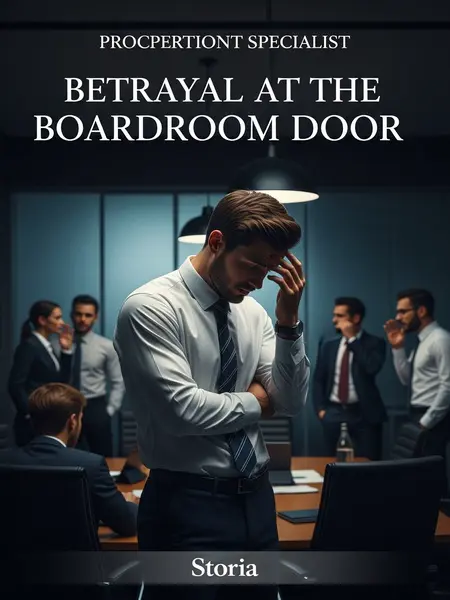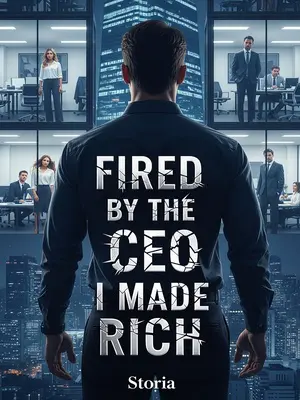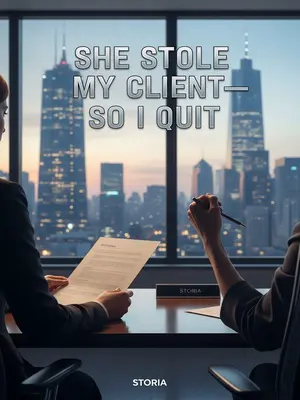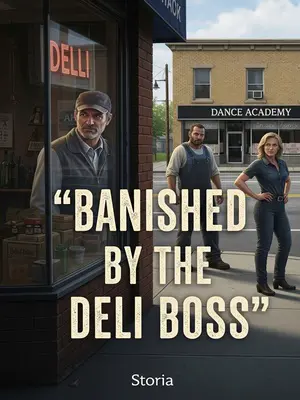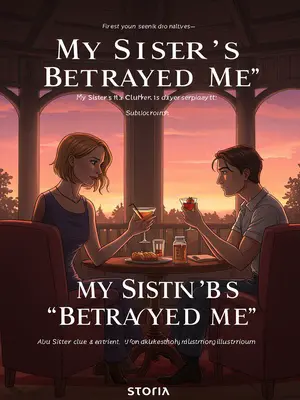The Price of Loyalty
She leaned against the frame, arms folded, her sharp suit jacket immaculate as always. Mariah had a reputation—always collected, always in the know, with a knack for popping up when you least expected it.
"Blake, I don’t know all the details, but let me give you some advice: pay back the $450, write your resignation letter, and start looking for another job."
Her voice was gentle, almost like a big sister’s, but I knew better than to take it at face value. In this place, everyone had their own angle.
"Manager Turner, do you actually believe I took a kickback?"
I searched her face for any sign of doubt, hoping she’d see through the setup.
"It’s not about what I believe. There’s video evidence and the supplier’s testimony. I can’t argue with that. I’m telling you this for your own good—just take the deal. Director Lee can still look out for you."
She looked away, her jaw tight. I wondered if she even believed her own advice. Maybe she’d given this speech to someone else before.
What do you mean, ‘take the deal’? Isn’t this just scapegoating?
My mind flashed through all the times I’d seen people pushed out for less, their names erased from the system overnight.
"Manager Turner, don’t you think it’s weird? Have you ever seen a company where the procurement staff gets caught, but the manager and director walk away clean?"
Her lips pressed into a thin line, and for a second, something flickered in her eyes—fear, guilt, or maybe just exhaustion. She didn’t answer right away.
Mariah’s face darkened. I knew she’d probably taken her share, just kept it within a ‘safe’ range so the audit wouldn’t catch her.
It was the open secret—don’t get greedy, and you’d be fine. Until now.
"That I can’t say. But this case was assigned to me by Director Lee. I just don’t want anything bad to happen to you."
Her voice was barely audible, her eyes darting around like she was afraid of being overheard.
I ignored her and pressed on,
I wasn’t about to let her off the hook.
"Yesterday, the audit found the detector issue, and today the supplier reports me. You really think there aren’t any insiders? I couldn’t have called them to report myself, right?"
I watched her reaction, waiting for her to crack. She just stared at the floor, lips pressed tight.
Mariah still didn’t answer.
The silence between us was thick, broken only by the distant hum of the air conditioner and the ping of a Teams message somewhere in the open office.
"The real issue is, this is on Director Lee. If I wanted to profit from this order, why would I only take $450? Even if I asked for $4,500, the supplier would’ve handed it over!"
I threw up my hands, exasperated. The logic was so obvious, but nobody wanted to hear it.
Just as Mariah and I were puzzling over this, Compliance’s Jordan Mason knocked and stepped in.
He poked his head in, clipboard in hand, his walk brisk, his gaze scanning the room like he was already late for his next meeting.
I was annoyed. I’d already explained everything—what did he want now?
I braced myself for another round of interrogation.
"Manager Mason, I’ve said all I need to say. You should just call the police. Is there anything else?"
I tried to sound bored, but my patience was running thin.
Jordan adjusted his glasses, straightening his tie—a nervous tick.
He cleared his throat, glancing at Mariah before speaking.
"Sorry, I’m actually here for Manager Turner."
Mariah looked at Jordan in surprise, her face suddenly pale, hands trembling just enough for me to notice.
"Manager Turner, we found some issues in a few procurement contracts you handled. You’ll need to come to the audit team and explain."
The words dropped like a bomb. Mariah swallowed hard, her confidence evaporating.
I watched her walk away, thinking the real fireworks were just beginning.
4
At first, I figured the company was just putting on a show, trying to scare everyone away from taking bribes.
It felt like a warning shot, a corporate haunted house—scare a few people, and everyone else falls in line. Or maybe more like a corporate Hunger Games, where you never know who’s next.
I never expected the anti-corruption storm to start so quietly and then blow up into a full-on crisis.
It started with whispered meetings and nervous glances, then exploded into chaos. Even the janitor seemed to know something big was going down.
The chairman personally sent out an Outlook email: as long as anyone voluntarily returned their illicit gains, the company wouldn’t pursue them. But if the compliance audit caught you, your case would be handed over to the authorities for criminal prosecution.
The email hit everyone’s inbox at 9:00 a.m. sharp. Phones buzzed, and you could almost hear the water cooler gossip and the flurry of Slack DMs. Some people started sweating before they’d even finished reading.
Later, the real reason for the storm got out.
Rumors spread like wildfire, people desperate for answers. The truth, when it came, was almost anticlimactic.
A few days ago, the Sales Director brought a competitor’s pre-sale flyer—snagged from a trade show—to the board meeting. He slapped it on the table and went off:
He was red-faced, voice echoing all the way down the hallway. Even the receptionist claimed she heard every word.
"The competitor’s new product is going for $750, but you’re telling me our BOM cost is already $750? How am I supposed to set a price or make a sales plan?"
It was the kind of outburst that left everyone stunned. The board sat in silence, blindsided by the numbers and the fury.
After that, he handed in his resignation and walked out.
He left his badge and company phone on the table, didn’t look back. No one tried to stop him.
The Sales Director’s exit lit a fire under the board—they put together an audit team to dig into the company’s deep-rooted corruption.
Within hours, the audit team was assembled—outside consultants, a couple of Big Four auditors, and some nervous HR folks. The mood was grim, like someone had died.
The competitor’s price might be $750, but their BOM cost was at most $600. That meant ours was 25% higher—an absolute gut punch.
And this was the company’s bread-and-butter product. If it tanked, so did we.
You could feel the panic ripple through the building. People started updating their LinkedIn profiles at lunch.
No wonder the Sales Director quit, and the board lost it.
It was like watching the first domino fall, knowing the rest were about to topple.
Everyone in procurement got called in for interviews with the audit team, and suppliers’ whistleblowing materials started flooding in.
The interview rooms were booked solid for days. People left looking pale, clutching folders like life preservers.
There were videos, Venmo and Zelle transfers—rumor was several buyers had already been reported, but no one knew who’d be next.
Gossip flew: who was next? Who’d already been nailed? Nobody trusted anyone anymore.
Suppliers who once wined and dined us suddenly flipped, becoming the company’s anti-corruption enforcers. They were eager to report buyers for kickbacks, acting like they’d never done anything wrong. It was completely surreal.
It was like a game of musical chairs—more like Survivor, but with less sunscreen. Suppliers who used to buy us dinner now acted like saints.
I watched as buyers in the office frantically deleted call logs and Messenger, WhatsApp, and iMessage chats, sweating bullets. It was almost funny—like trying to bail water from a sinking ship with a coffee mug.
A storm was coming.
The air in the office crackled with anxiety—fear, suspicion, and the sense that nothing would ever be the same. Outside, thunder rumbled, and the overhead lights flickered, as if even the building knew trouble was on the way.
5
After work, Mariah Turner sent me a Facebook message inviting me to dinner…
Her tone was breezy, but the little typing dots kept blinking, disappearing, and coming back. She was nervous, picking her words with care.
I shot back:
"So, which supplier’s picking up the tab tonight? Want me to call ahead?"
I couldn’t help the sarcasm. Old habits die hard.
She rolled her eyes at me, but her smirk was half-hearted.
"At a time like this? I’m paying for everyone myself!"
She sounded defensive, like she needed to prove she could play by the rules when it mattered.
Then she sent the address—a no-frills diner called Mel’s on Main. Figures. When it was her own money, she suddenly got thrifty.
I laughed to myself. The place was a classic greasy spoon—red vinyl booths, faded menus, and a waitress who kept the bottomless coffee coming. The all-day breakfast was the only thing anyone ever ordered. It was a far cry from our usual scene.
Our department usually hit up fancy steakhouses. After dinner, a quick call, and by the time dessert hit the table, someone had already paid. Some suppliers even brought gifts for everyone.
I remembered those nights—dim lighting, endless wine, the feeling you’d made it. It felt like a different life.
Designer bags, cosmetics, top-shelf whiskey, imported cigars—gifts scaled with the size of the contract.
People joked about it, but everyone kept track. It was like Christmas every month—if you played your cards right.
Mariah had a regular supplier who paid for everything—not just meals, but spa days, shopping trips, even her flights to Miami. Rumor was, her monthly mortgage was covered by the supplier.
The whispers never stopped. She never admitted anything, but her new shoes and weekend getaways told their own story.
I even suspected the down payment on her house came from a supplier.
She moved in right after a big contract landed. Coincidence? No one really bought that.
My welcome dinner was at a five-star Hilton. As the newbie, I was sweating bullets, sure I’d have to pay, and one meal would wipe out half my year’s salary.
I remembered glancing at the menu, calculating what I could afford, and nearly skipping dessert out of panic.
Luckily, after dinner, Mariah made a call, saying she’d introduce me to the supplier I’d be handling.
She winked at me, her tone casual, but I could tell she was sizing me up.
After I stumbled through my introduction, Mariah just said, "The usual place," and hung up.
I had no idea what that meant, but everyone else seemed to. I just nodded and hoped I hadn’t blown it.
When I went to pay, the cashier said someone had already settled the bill and even packed two bottles of top-shelf whiskey for me.
It felt like I’d been initiated into a secret club. I walked out with the bottles, half expecting security to stop me.
Rumor had it, the supplier who provided the most evidence in this round of whistleblowing was her regular bill-payer, with every transaction carefully documented.
It was all coming full circle now. The same people who’d greased the wheels were now pulling the trapdoor.
If things got serious, Mariah was definitely headed for jail—her mortgage, her family, her reputation all on the line. Was this dinner her way of saying goodbye?
I wondered if she was about to confess, or just wanted one last meal before the storm hit.
Or maybe she had something else in mind.
I braced myself for whatever was coming.
6
After a few drinks, Mariah put her arm around my shoulder.
She leaned in close, the scent of bourbon and hairspray mixing in the air. Her voice was softer than usual, almost vulnerable, her eyes shining with unshed tears.
"Blake, just between us, I’ll be honest. This time, things are more serious than I thought."
She looked me straight in the eye, her confidence slipping. For the first time, I saw real fear there.
Then came the usual emotional pitch:
She squeezed my arm, words tumbling out in a rush.
"You’re the one I trust most in the department. Every time I go out, I take you with me, treat you like family. Now that there’s trouble, I was hoping you could help me out."
I waited, knowing there was more to come. There always was.
"Manager Turner, just say what you need. We’ve worked together a long time."
I tried to keep my tone neutral, but my heart was pounding. I knew where this was going.
Mariah’s eyes went red.
She blinked, dabbing at her eyes with a napkin. I wondered if the tears were real or just another act.
"Here’s the deal. All the suppliers have gotten an email from the chairman, with a lawyer’s letter attached. The message was clear: if they don’t report buyers who take kickbacks, they’ll be held criminally responsible, and the news will be blasted across the industry. After that, no company will touch them."
She let out a shaky breath, hands trembling as she talked.
"So, to protect themselves, the suppliers are ready to throw you under the bus too?"
I tried to keep my voice steady, but the thought made my skin crawl.
"Not yet. They just have the evidence ready. Some have come to me to talk it over."
She looked at me, searching for reassurance I couldn’t give.
"That’s easy. Just deny ever taking kickbacks. As long as you and the suppliers are on the same page, how can anyone prove anything?"
I shrugged, but we both knew it wasn’t that simple anymore.
"The problem is, some suppliers don’t want to risk it, and some are connected to the chairman. If they don’t report, it’s hard to explain."
She sighed, staring into her glass like it might have the answers.
"So what now? For this amount, it’s five to ten years, right?"
I tried to make it sound like a joke, but neither of us laughed.
"Not necessarily. The chairman said if you confess, return the kickbacks, and resign, that’s it. We’re a public company—if this gets out, it’ll tank the stock. It’s happened before—people were quietly let go. That’s how it goes in most companies. Look at that mess at GM—a whole supply chain scandal, but no one did time."
She rattled off examples, trying to make it sound normal. But we both knew it was just a way to justify the mess.
"Then just quit."
I tried to sound casual, but the truth was, I had nowhere else to go.
"How can I? Most of the money’s gone—food, drinks, house payments. The market’s down, I can’t sell. Even if I wanted to return the money, I couldn’t. That’s why I came to you for help."
She looked at me, pleading. I felt a pang of sympathy, but not enough to take the hit for her.
"Blake, don’t make waves. I was hoping you could take one for the team here. I’ll make a deal with the supplier. I’ll pay the money. After you resign, I’ll recommend you for a top spot at the supplier and give you $30,000 as compensation."
She laid it all out, her voice barely above a whisper. The offer was tempting, but the price was steep.
So that’s what this is about!
It all clicked. She needed a scapegoat, and I was the easiest target.
Now I understood—she wanted me to take the blame.
I stared at her, wondering how many times she’d pulled this trick before.
7
"Manager Turner, the thing is I didn’t take anything. How am I supposed to take the fall? And why me?"
I kept my voice even, but inside, anger burned. I wasn’t about to become her sacrificial lamb.
"I chose you because you’re like family. Plus, the evidence on your detector case is already airtight. You’re leaving anyway, so help me out. I’ll find you another job and give you $30,000."
She tried to sweeten the deal, words tumbling over each other, her desperation showing.
It was tempting. I couldn’t stay at the company anyway. If Mariah could get me another job and $30,000, that sounded like a lifeline.
I hesitated, thinking about the job market—how hard it was to land something decent these days. Thirty grand could keep me afloat, pay off bills, maybe let me breathe for once. But at what cost?
Seeing my hesitation, Mariah pressed on:
She leaned in, voice dropping to a conspiratorial whisper.
"Don’t worry, we’ve already worked it out with the supplier. As long as we get through the audit, it’s all good. Director Lee will talk to Mr. Harper, and once the kickbacks are returned, it’s over."
She made it sound easy, like all my problems would vanish with a signature and a handshake.
I still didn’t answer, so Mariah kept pushing:
She reached across the table, squeezing my hand, her nails digging in just a bit.
"Blake, the chairman said if you confess and resign, there won’t be any legal consequences. He wouldn’t go back on his word, right? Anyway, you’re leaving—whether you admit to $450 or $45,000, what’s the difference?"
Her words echoed in my mind as I stared at my untouched food. The diner felt colder now, the hum of the fridge and the clatter of dishes fading into the background. Was I really about to sell my soul for a second chance?
